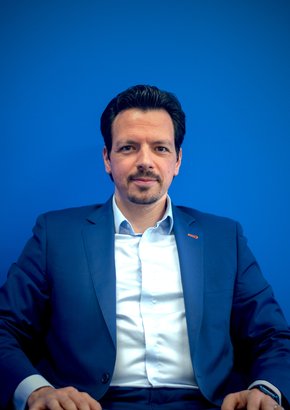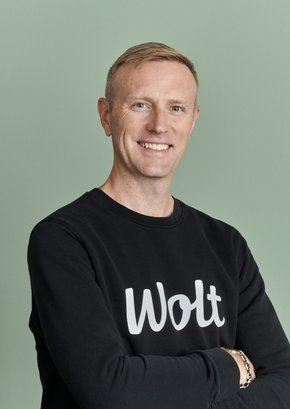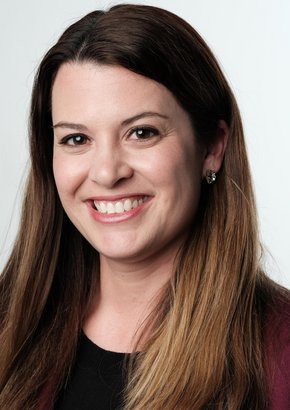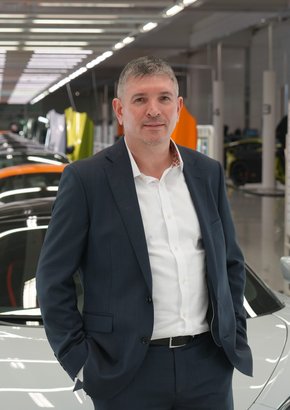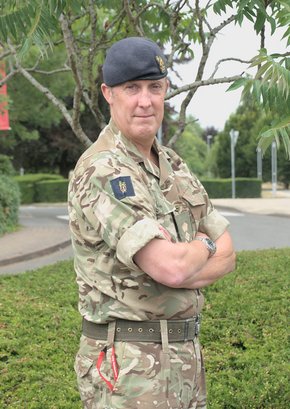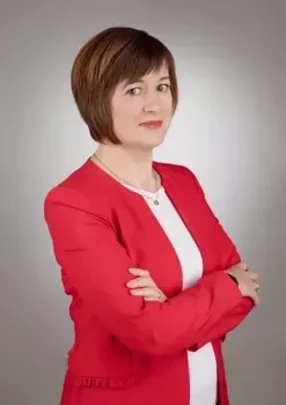
Ciara Mullan
VP of Transition and Transformation
As the VP for Transition and Transformation, Mullan says her top priority is the customer. "It's about getting it right for the customer. When we get it right for them, everybody wins." T-Systems' strategy focuses on four key areas: digitisation, the cloud and infrastructure and moving people onto it, security, and connectivity. "We leverage these areas to drive the strategy for our customers," she says.
Mullan explains that T-Systems' CEO, Adel Al-Saleh, who joined the company in 2018, came with a real drive to transform the organisation internally. "He's brought in a transformation and change agenda, focusing on our customers, lining up what we do internally with what our customers do and what they need. We can see this most recently in what's happened in response to the coronavirus with our customers. It's been a really trying time and an opportunity to test ourselves."
The pandemic led them to some positive outcomes. "If I think about what we're able to do for customers, we had to quickly rise to the challenge of responding to coronavirus. We found that we have the procedures to work from home, we can quickly get our people to work this way, and we've also been able to see how capable we are when reacting to a crisis in an agile way."
They've also had to act quickly to provide solutions to customers. "Over the course of one weekend a customer needed to double their network capacity in response to people working from home, and we could do that," Mullan explains. In another case, a very large logistics company quickly received 15,000 encrypted connections for employees who needed to work securely from home, and they were also able to provide a US healthcare company with 500 laptops and a thousand VPNs. "These examples show what we've been able to do for our customers as a result of our transformation. And that's what has to happen - we don't know what's going to happen in the future, but we know the speed of change will be rapid, so we need to think about how we manage that."
"We're transforming our tools and our operations. That means having programmes in place, being of an open mindset and working with people that share our culture, on a cultural transformation. That is leading to a focus on reducing complexity, optimising speed and giving the right focus to our customers."
The organisation's Zero Outage programme has been developed with the aim of minimising downtime and maximising business continuity. It involves clearly defined processes with fast recovery times, using state-of-the-art platforms, and ensuring staff are fully trained. "Everybody is trained in Zero Outage procedures which is all about stability. On one hand we need to do things quickly - and we can do them - but we have to do them safely. By leveraging those fundamentals to the company it helps ensure the digital transformation goes smoothly."
Also important is having a strong partnership model in place. Mullan explains this ensures they're doing the right things both for their customers and for themselves. "Our partnerships with leading technology and software enterprises are really one of our strengths. For customers, we're collaborating with specialists in joint developments and projects, as well as technology and sales alliances. So we're really getting genuine benefits."
They have a particularly long-standing relationship with VMware, who they've been working with since 2005 on virtualisation and cloud solutions, helping T-Systems customers expand and secure their virtualised IT.
"The point of these partnerships is to pave the way for digitalisation, promoting growth and innovation for the enterprise, and T-Systems is certified to participate in key strategic partner programmes by industry leaders like SAP, Microsoft and VMware. In addition, because these are two-way partnerships, we need to make sure that our own high quality standards are met, and we work with more than 20 partners who contribute to our Zero Outage programme to improve customer satisfaction."
Customers give T-Systems their feedback via their annual TRI*M survey, and in 2018 they were in the top 10% of the European ICT benchmark.
COVID-19 has made people think differently about the way they work, which Mullan believes will continue to drive plenty of change. "It presents a real opportunity to challenge what is normal. Even people who were maybe reluctant to change will think that because they were able to change, and did it very quickly, they should continue to challenge themselves."
Looking ahead, Mullan believes things will continue to move at a fast pace. "The market for IT and telecommunications was undergoing radical transformation, and that will continue. There'll be more focus on quickly moving to the cloud and outsourcing business. We're seeing more demand for transmission speed, mobile services and increasing 5G. We'll continue to bring connectivity and intelligence to help our customers with new business models, and focus on new levels of productivity and transforming the customers' experience.
“Technology itself is going to increase its digital position with mobile, Big Data analytics and the internet of things. We'll continue to be in there with high expectations for the business technologies, some of which are in the earlier stages of adoption, such as robotics and AI, even blockchain, but they're all coming to the fore.
"What we can see, along with other suppliers and other people we work with, is that the traditional IT business is due to decline and will be taken over by the digital transformation, by the cloud, by mobility, and also by cybersecurity, which of course is in the DNA of T-Systems. I think the next five years are going to be very interesting, with lots of opportunities."
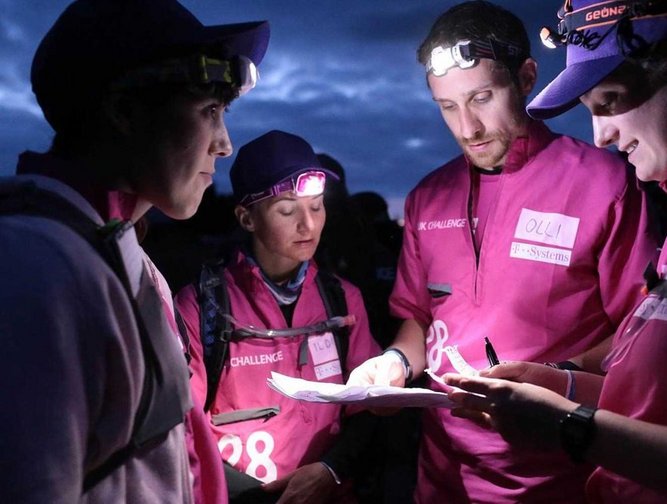
Featured Interviews
We’ve built some unique features into our insurance program specifically because we’ve listened to courier partners in every country

